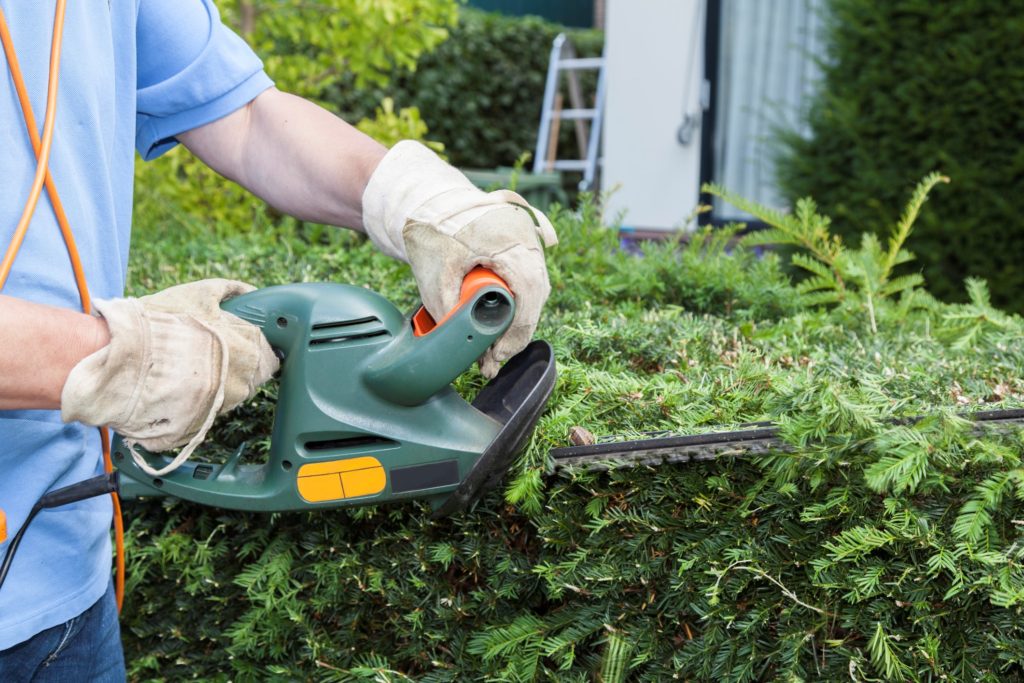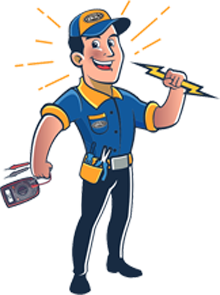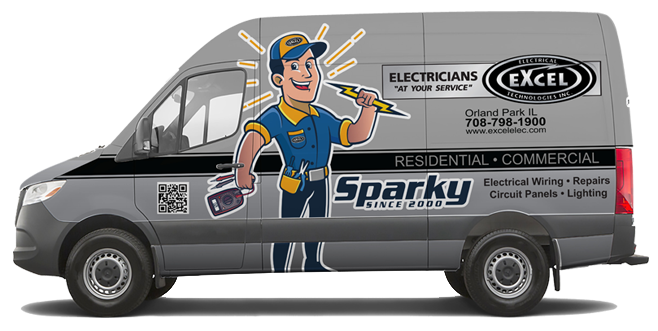
Electrical Safety – Proceed with Caution
By: bob
Ever wonder how easy it is to take certain things for granted? You want to watch television? You turn it on. Your phone needs recharging? Just plug it in. Need to light up the bathroom? Just flip the switch.
And yet if not handled properly, electricity poses serious problems for your home and family.
So, whether you’re using electrical devices or tools, working on a DIY project, or simply going about your day-to-day business, take the necessary precautions to reduce your risk of electric shock, burns, and even fire.

Electric Lawn Equipment – Pairing extension cords with hedge trimmers, chain saws, lawn mowers and other electric lawn equipment can lead to disaster if you accidentally cut through the cord. Make sure the cord is out of the way before beginning your work and only use properly rated extension cords. For added safety, set tools and equipment on manual rather than automatic.
Power Lines – A downed power line can be downright deadly. If you see one, call 9-1-1 immediately and keep away from the area. Take note of nearby power lines before trimming trees and branches and avoid placing your ladder close to power lines.
Generator – A portable generator can be a lifesaver in a power outage. But if not used properly, it can be a recipe for disaster. Only use specially rated cords to connect the generator to appliances, and have the generator serviced annually.
Kitchen Appliances – Keep all kitchen appliances as far away from the sink – and water – as possible. And if your kitchen isn’t equipped with ground fault circuit interrupter (GFCI) outlets, have your conventional outlets replaced to prevent electric shock. In new home construction, GFCI outlets are required wherever water and electricity can mix.
Bathroom Accessories – Like kitchen appliances, curling irons, hair dryers, and other corded accessories pose a serious risk around water. Do not use these appliances over a full sink or tub and make sure all bathrooms are equipped with GFCI outlets.
Pools, Spas, and Hot Tubs – Any amenity that requires a dedicated electrical circuit should be installed by a professional, and any nearby outlets should be the GFCI variety to minimize the risk of electrocution. Also, never use televisions, radios, or other corded electronics in or near a pool, hot tub, spa, or sauna.
Power Tools – There’s a sense of pride when creating, installing, or repairing something with your own two hands. But drills, sanders, circular saws, and other power tools can deliver painful burns and shocks if not used properly. Regularly inspect cords and plugs for fraying, cuts, burns or other signs of damage and only use specifically-rated extension cords when needed.
Then there are certain wires you can’t inspect, like those inside walls or your circuit breaker box. For those and numerous other applications, we recommend an annual whole-house electrical wiring and safety inspection. Wiring, just like your house, ages. And as it does so, wear and tear eventually make themselves known. So, play it safe and call to schedule service today.





